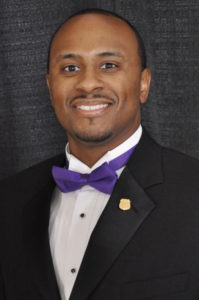
Will Jemison
Keeping our faith
By Will Jemison
Support of and a disproportionate use of the death penalty is a sad reality of the legacy of our regions’ history of struggle with human rights and living the values of the United States Constitution, let alone the demands of the gospel of Jesus Christ. Chattel slavery, lynching, Jim Crow and segregation were the ultimate denial of the sanctity of all human life. Unfortunately, state sanctioned executions evolved into a legal way of oppression of those accused of capital crimes, guilty or not, and of African Americans and poor whites as well. The criminal justice systems of the states of the Old Confederacy have continued to use capital punishment in ways that still disproportionately affect those groups. It has been said that it is better to be rich and guilty in these states than poor and innocent especially in regards to capital offenses.
In light of the current vitriolic climate for political and social debates in our country Pope Francis’ recent exhortation concerning the inadmissibility of the death penalty comes at a most critical time. In Catechism Number 2267 the Church states, “Consequently the church teaches in light of the Gospel, that the death penalty is inadmissible because it is an attack on the inviolability and dignity of the person. Further the church is exhorted to work with determination to see the death penalty abolished worldwide.”
Rather than seeing this as a new teaching the accompanying letter says this is in reality a refinement and evolution of the church’s enduring advocacy for life. From the apostolic period to this very day our Catholic community’s best teaching has been rooted in a biblical and social sensitivity which demands of all our human institutions and systems a dedication to advancing the common good.
In our country we have witnessed the theological and philosophical inconsistency of supporting prohibitions against abortion and promotion of the death penalty among several other social and political positions which do not advance the common good. One cannot be pro-life and not be concerned about the health of the planet we call home. One can not be pro-life and seek ever more vindictive ways to punish the poor. The consistent ethic of life demands that the unborn and those marginalized by state executions, poverty and prejudices in all its forms are equally valued as those we so blithely determine as “innocent and worthy of protection.”
A recent post by a Facebook colleague, Dr. Dave Barnhart, who is also an ordained United Methodist minister, poignantly points out why Pope Francis teaching on the death penalty is so necessary if Christians are truly to be advocates for human life, literally from womb to tomb.
“The unborn are a convenient group of people to advocate for. They never make demands of you; they are morally uncomplicated, unlike the incarcerated, addicted, or the chronically poor; they don’t resent your condescension or complain that you are not politically correct; unlike widows, they don’t ask you to question patriarchy; unlike orphans, they don’t need money, education, or childcare; unlike aliens, they don’t bring all that racial, cultural and religious baggage that you dislike; they allow you to feel good about yourself without any work at creating or maintaining relationships; and when they are born, you cannot forget about them, because they cease to be unborn. It’s almost as if, by being born they have died to you… prisoners? Immigrants? The sick? The poor? Widows? Orphans? All the groups that are specifically mentioned in the Bible? They all get thrown under the bus for the unborn.”
The Holy Father’s exhortation demands that Catholic Christians must be advocates for a gospel rooted, consistent ethic of life, even for those our society deems undeserving and unworthy.
(Will Jemison is coordinator for Black Catholic Ministry for the Diocese of Jackson)
